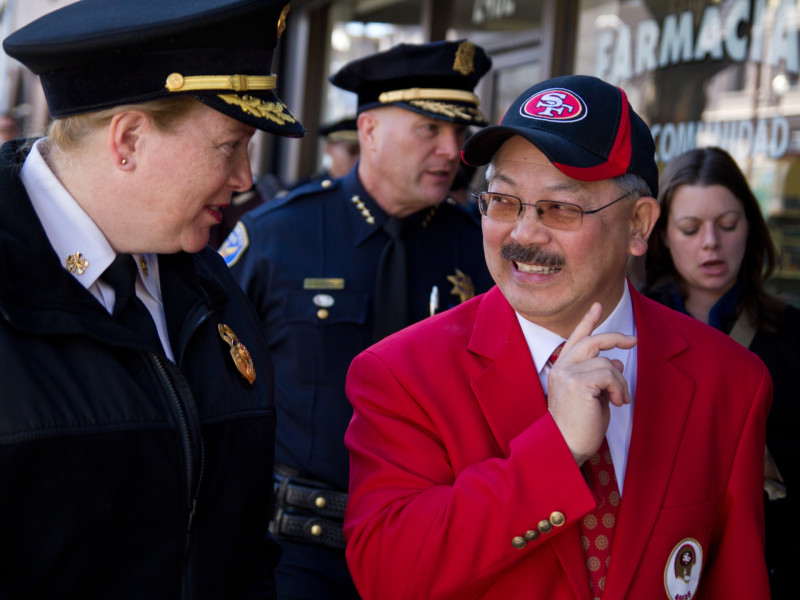"My budget doubles down on our public safety investments to meet the needs of a growing city and the growing demands of our first responders," he said. "We will through this budget hire 400 additional police officers, 198 firefighters, 55 paramedics, and 36 911 dispatchers."
Asked why he didn't budget any funds for the misconduct investigations, Lee said he didn't want to encourage legal battles between city departments.
"What I don’t want to see is lawyering up on the public defender's side and the district attorney’s side just to battle against each other," Lee said, adding that he didn't believe 3,000 cases need review.
"I think that the DA and the police chief and the Police Commission need to all work closely together," he said. "I do believe there is a number they have to look at, and they can come to an agreement as to what that is."
A spokeswoman with the public defender's office said prosecutors and public defenders are collaborating to review the cases.
When he announced the probe, District Attorney George Gascón said his office flagged 10 years of arrests involving officers implicated in the texting scandal and turned up about 1,600 prosecutions. Prosecutors did not file charges in the remaining 1,400 cases. Gascón said it was possibly more important to look at arrests that weren't prosecuted, indicating charges might not have held up in court.
"I am disappointed that this was not included in the mayor’s budget," Supervisor David Campos said. "I think that members of the Police Department and members of the community deserve that the city allocate the resources needed to get to the bottom of what happened."
The text messages were made public in a federal court filing on March 13. The city's public defender revealed on March 26 the allegations of forced inmate fighting at a city jail, and the San Francisco Chronicle reported on March 28 on a breach of protocol at SFPD's crime lab, potentially affecting hundreds more prosecutions.
"Our special prosecutions unit, which handles misconduct for the district attorney’s office, was underwater," Szabo said, "and really needed additional resources to become adequately staffed and investigate these varying issues."
Gascón said at the time that he would seek additional funding from the city, but what became of the request was unknown until now. The mayor's budget would increase the DA's overall funding by $3.7 million over two years, mostly allocated for mandatory salary and benefit increases. The budget also includes funding for an additional attorney to work on the city's implementation of court-ordered, outpatient mental health treatment, or Laura's Law, and a boost for IT staff.
Requests in other areas, like increased funding for processing untested rape kits and victim services, were denied.
"We requested four additional victims' advocates to serve this growing population," Szabo said, citing a 30 percent increase in victim services over the past four years. "We didn’t get one."
Szabo said the task force's work will continue. "Unfortunately, it may take a little longer than we'd hoped and anticipated," he said.
